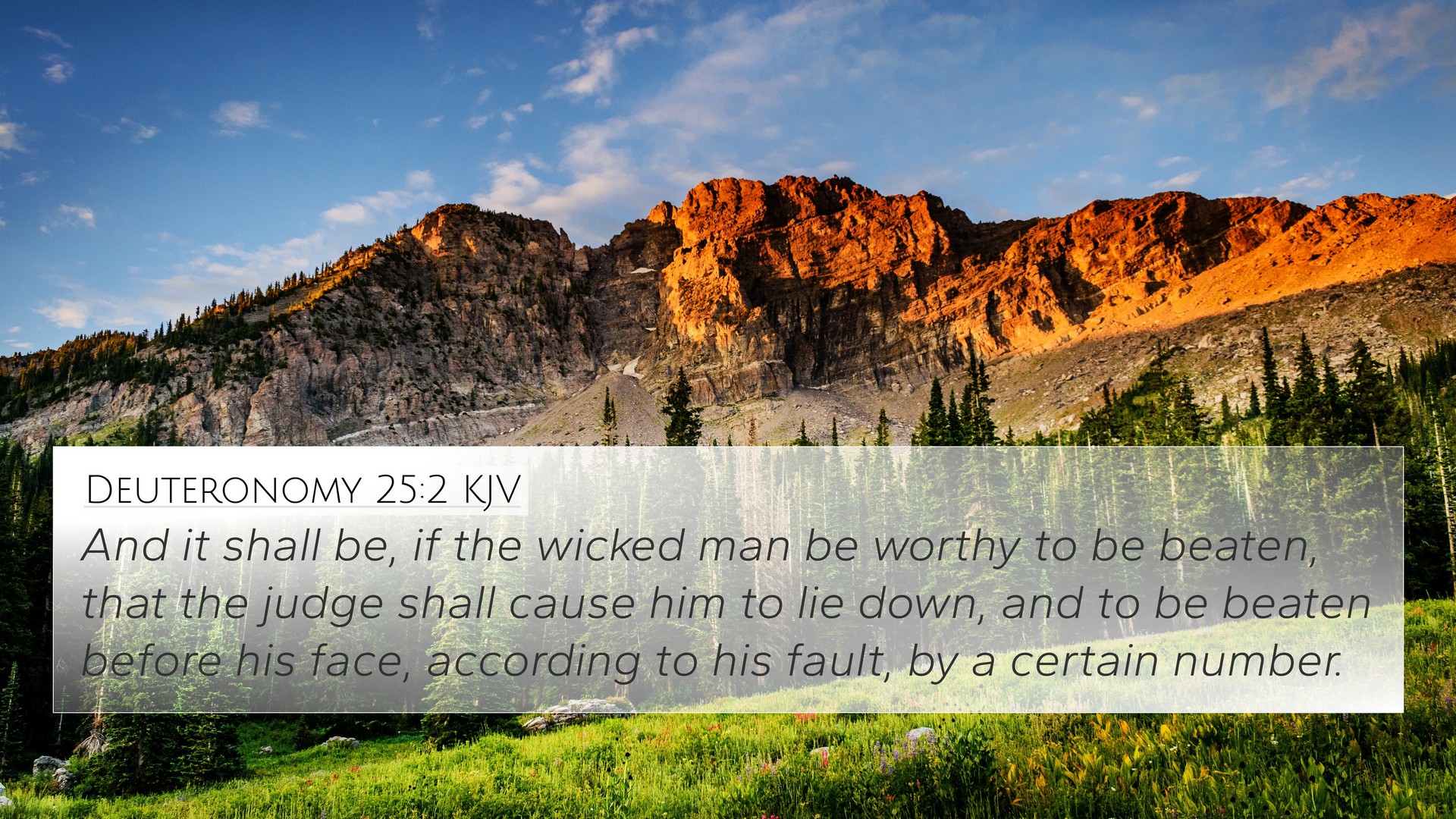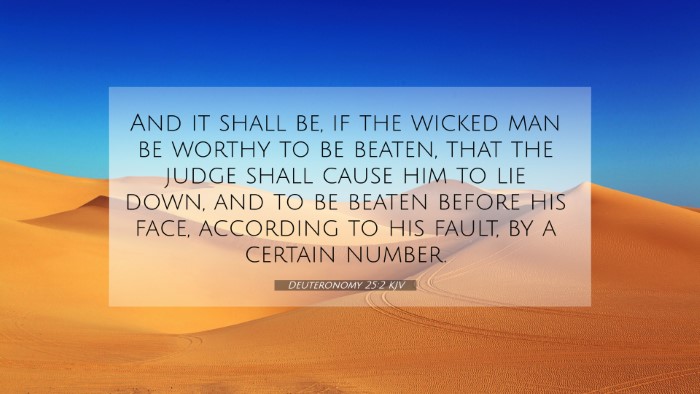Meaning and Interpretation of Deuteronomy 25:2
Bible Verse: Deuteronomy 25:2 - "And it shall be, if the wicked man be worthy to be beaten, that the judge shall cause him to lie down, and to be beaten before his face, according to his fault, by a certain number."
Summary of Insights from Public Domain Commentaries
Deuteronomy 25:2 addresses the proper conduct within the judicial system of ancient Israel, particularly in the administration of justice. The verse provides guidelines on the punishment of a “wicked man” who is found guilty of wrongdoing. The primary goal of this passage is to ensure fairness and order in administering justice, echoing the themes of accountability and the controlled nature of punitive measures.
Key Themes and Interpretations
- Judicial Fairness: Matthew Henry emphasizes that the role of a judge is paramount; they must evaluate the offense and impose a punishment that corresponds directly to the nature of the crime. This reflects God's intention for justice to be meted out equitably.
- Limits of Punishment: Albert Barnes notes that the judge is required to keep punishments within reasonable limits, highlighting a theme of moderation in discipline, which prevents excessive punishment and reflects divine principles of fairness.
- Public Witness: Adam Clarke suggests that the act of punishing in public serves as a deterrent to others, an important aspect of maintaining social order within the community.
- Moral Responsibility: The verse underscores that the punishment must be a direct result of the individual’s actions, promoting individual accountability in society and ensuring that actions have corresponding consequences.
- Procedural Clarity: The command for a judge to carry out punishment in a specific manner reduces ambiguity, thus preventing the potential for corruption or personal biases in judicial processes.
Bible Cross-References
To understand Deuteronomy 25:2 more deeply, we can consider various Bible verse cross-references:
- Exodus 21:20-21: Discusses the punishment of a servant, emphasizing proportionality based on the wrongdoing.
- Proverbs 19:29: Indicates that judgments should be executed with wisdom and insight into human behavior.
- Romans 13:4: Speaks of the governing authorities as ministers of God for justice, reflecting the continuity of judicial principles across Scripture.
- Galatians 6:7: Asserts the principle of sowing and reaping, reinforcing the idea that actions have consequences.
- Matthew 7:2: Highlights the notion that the measure by which one judges will be used against them, resonating with the theme of justice.
- James 2:13: Discusses mercy triumphing over judgment, illustrating the balance between justice and mercy.
- Deuteronomy 19:15: Introduces the requirement of evidence to convict, again emphasizing fair judicial practice.
Thematic Connections
In exploring Bible verses that relate to each other, we uncover themes of justice, mercy, and morality that are prevalent throughout both the Old and New Testaments. The inter-Biblical dialogue emphasizes that the principles established in Deuteronomy resonate throughout biblical teachings, showcasing God's enduring standard for justice:
- Justice and Equity: The link between Deuteronomy 25:2 and various wisdom literature (like Proverbs) signifies the continuous call for a just society.
- Moral Conduct: Connecting Deuteronomy with New Testament writings provides guidance on moral behavior within both communal and individual contexts.
Conclusion
Ultimately, Deuteronomy 25:2 serves as a foundational verse that illustrates the importance of justice within a community, reminding readers of the balance between punishment and mercy. Through the framework of comparative Bible verse analysis, believers are encouraged to understand the broader biblical narrative that emphasizes accountability and righteousness. As one seeks to explore tools for Bible cross-referencing, this verse remains a essential text that opens the door to further study and understanding of God's character and His expectations of human conduct.









